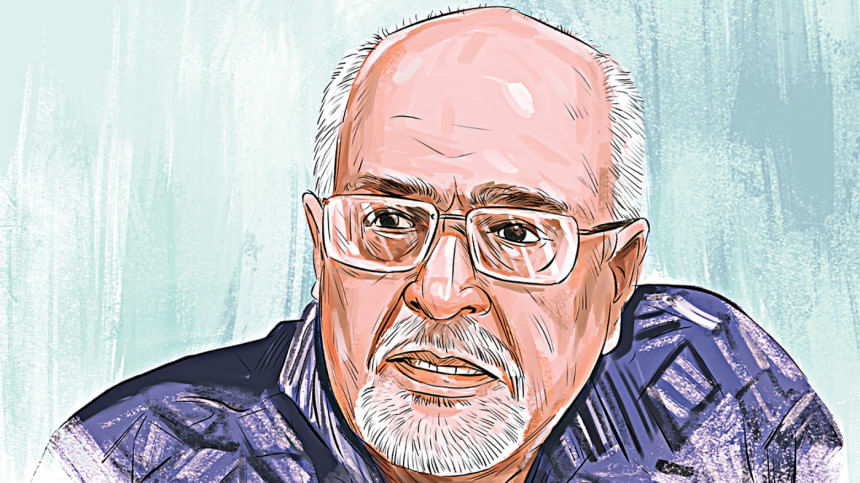Growth data inflated by 3.5 percentage points during AL regime

The former Awami League government had manufactured a development narrative for Bangladesh by inflating economic growth data by an average of 3.5 percentage points a year, Debapriya Bhattacharya, head of the panel that prepared a white paper on the state of the economy, said yesterday.
"The first and foremost thing we did was unpack the growth story. So, we dissected the development narrative and saw that it was based on a narrative of high growth," he added.
Bhattacharya, a distinguished fellow at the Centre for Policy Dialogue, made these remarks while delivering the keynote speech at the "Distinguished Lecture Series: The State of Bangladesh Economy: What Is To Be Done?" at the Westin Dhaka yesterday.
The Bay of Bengal Institute and Cosmos Foundation jointly organised the event.
Bhattacharya said the villain of the growth narrative was the public data ecosystem.
"The whole public data ecosystem was trampled on and was politically driven to generate data which had nothing to do with realities," he said.
"Our assessment will show that 3.5 percentage points were inflated on average. If you saw a 7 percent growth rate on paper, it was no more than 3 percent to 3.5 percent in reality.
The problem with the growth narrative is that we need investment to have that kind of growth. But if you look at the whole 15 years, the private sector-GDP growth rate was never above 23 percent."
In the white paper, the panel cited a World Bank study and said structural growth drivers such as trade, foreign direct investment, finance, macroeconomic stability and political stability could predict GDP growth reasonably well during the 1990s and 2000s.
However, the share of unexplained GDP growth started to increase in the 2010s. This peaked in the 2015-2019 period, when 3.7 percentage points of growth could not be explained by the structural drivers, it added.
So, it is a very peculiar situation, Bhattacharya said.
"There is no investment and possibly no employment, but growth is happening. And those growth figures were not supported by the import of capital machinery or credit flow either," he added.
"All these issues are very inconsistent. You will be very amused. The meeting we had with the Bangladesh Bureau of Statistics was really revealing. Some ministers would keep files on their table for weeks because they did not like the inflation figure. They would say to go back and return with better growth figures."
Bhattacharya said people who were supposed to cross-check data were handpicked from a bunch that would agree with the numbers and not try to contest them.
"So, the growth narrative came from a data system that created an aura which did not exist in reality," he added.
Bhattacharya highlighted the inadequate GDP allocation to social sectors, stating: "Despite becoming a middle-income country, we spend less than 1 percent of the GDP on education, under 2 percent on health, and less than 2 percent on social protection -- scandalously low investments.
"A low-income country with this kind of investment in human development is hard to imagine. As a result, what do we get? On the one hand, we do not have private investment creating jobs. On the other, we have an education system that is totally lacking in quality."
He added that the public health system and the rural education system, alongside social protection measures, had also been neglected. "Now, there are 140 different types of social protection measures. We want them to be integrated."
Bhattacharya underscored the need for a more careful, energetic, and sensitive approach to addressing the economic situation of the common people if the interim government intends to achieve ambitious reforms and hold a successful national election.
"If you want to have ambitious reforms in the future and a fantastic national election at the end of the line, then you need to look at the economic situation much more carefully with more energy and more sensitivity for our people," he said.
Cosmos Foundation Chairman and Bay of Bengal Institute Chairman Enayetullah Khan delivered the welcome speech while Cosmos Foundation President Iftekhar Ahmed Chowdhury chaired the programme. Ambassador (Retd) Tariq Ahmad Karim, president of the Bay of Bengal Institute, delivered the closing remarks.

 For all latest news, follow The Daily Star's Google News channel.
For all latest news, follow The Daily Star's Google News channel. 



Comments